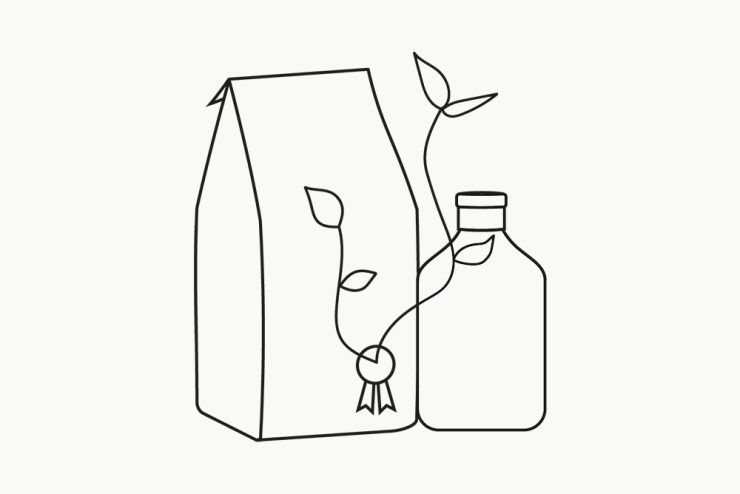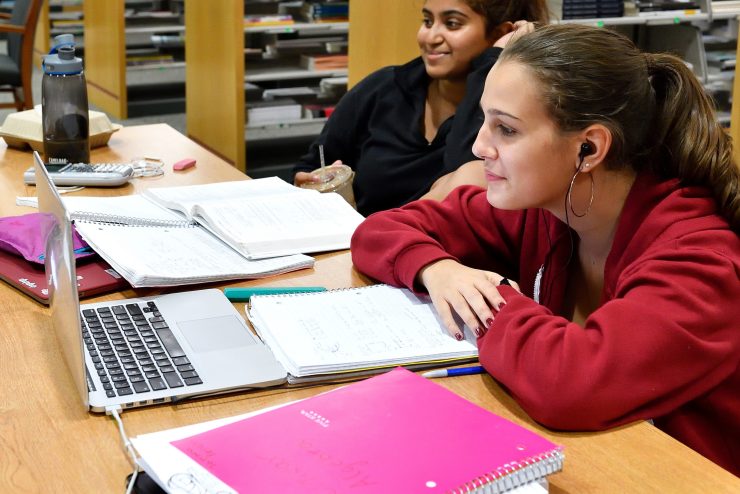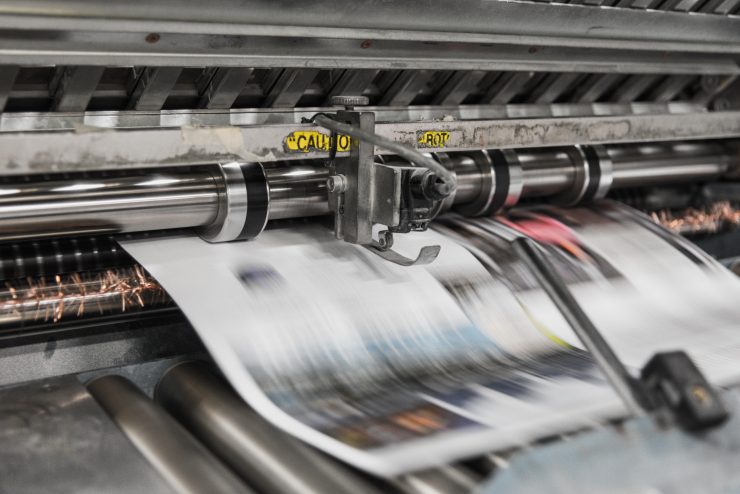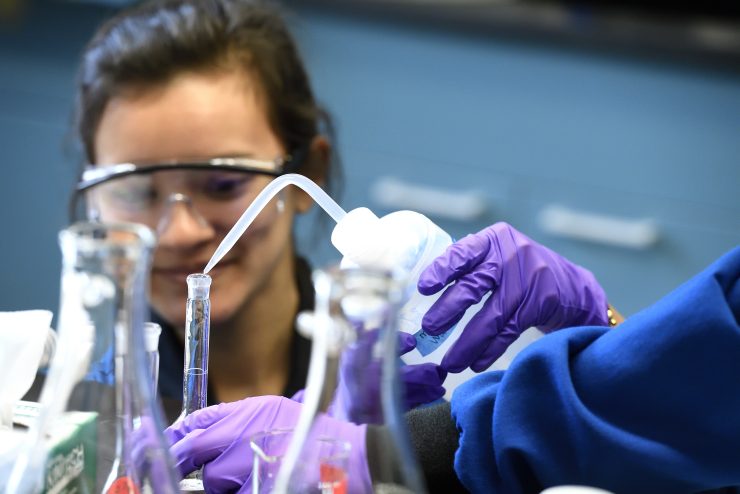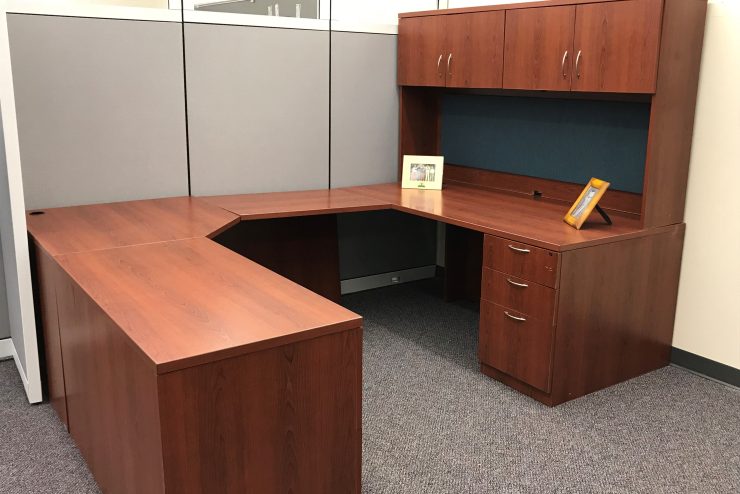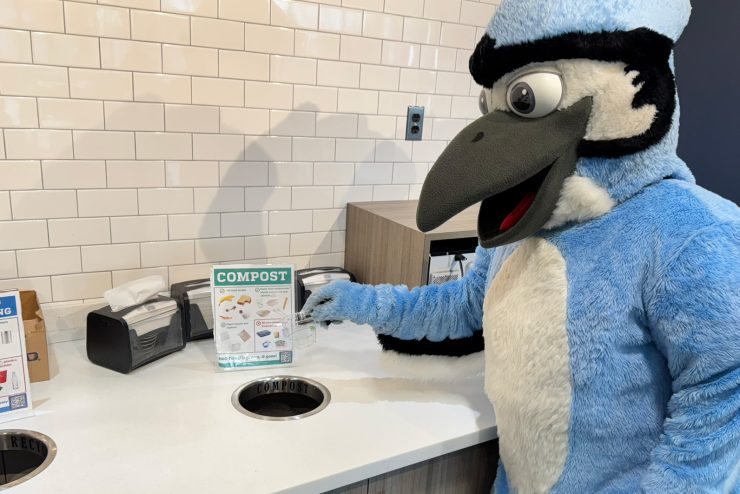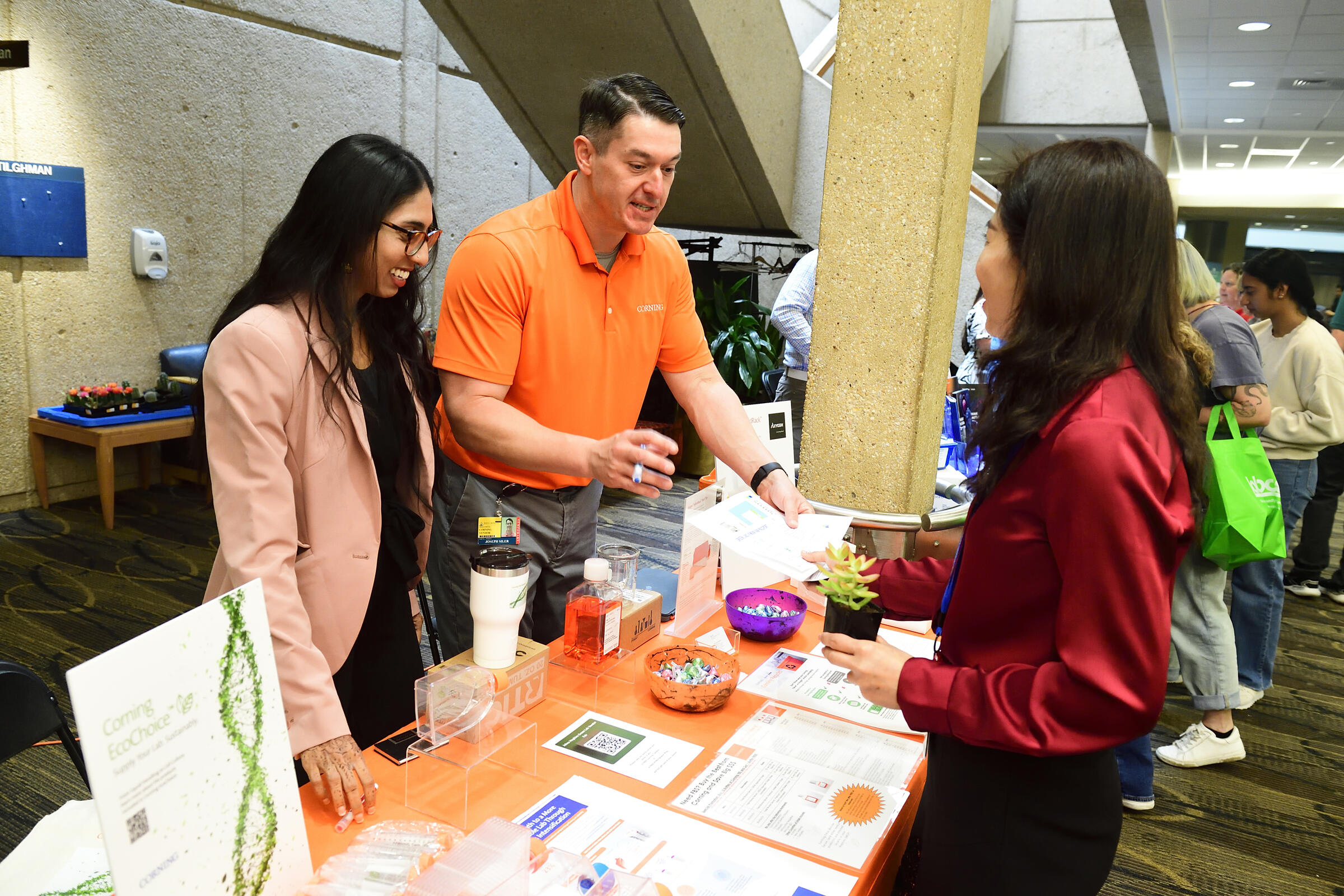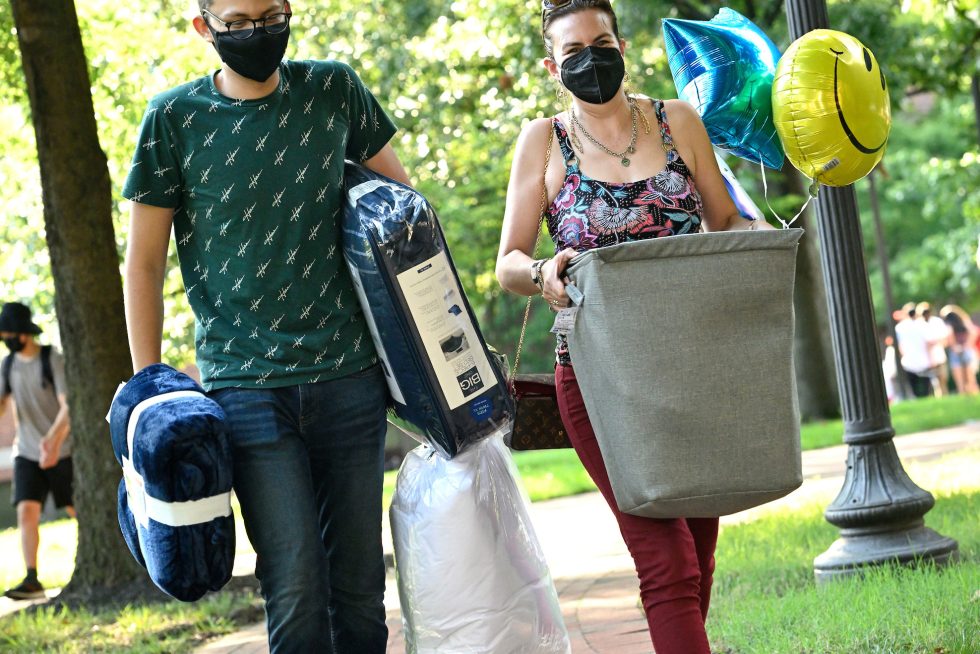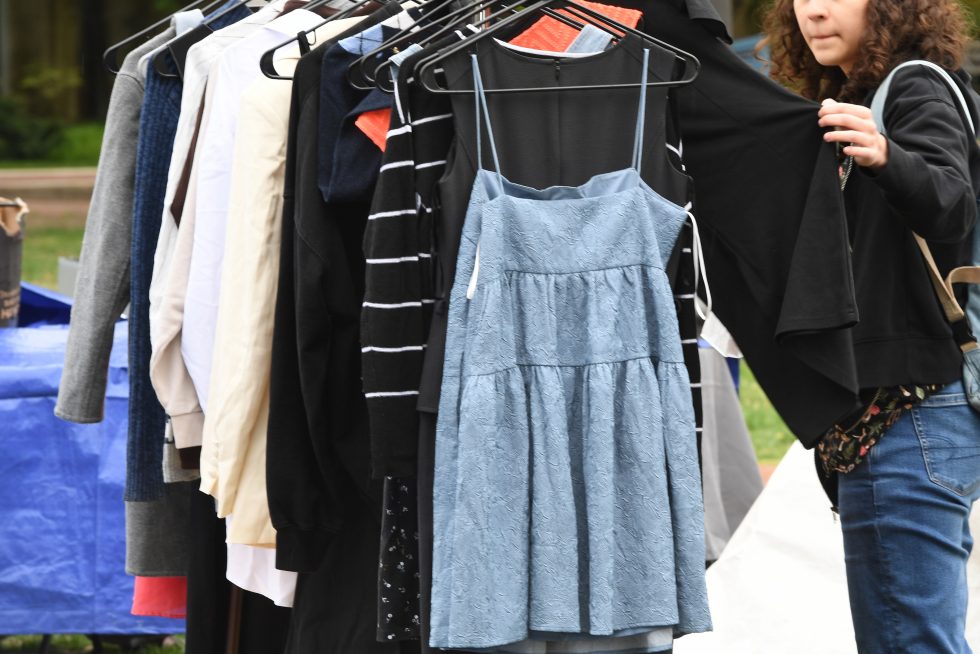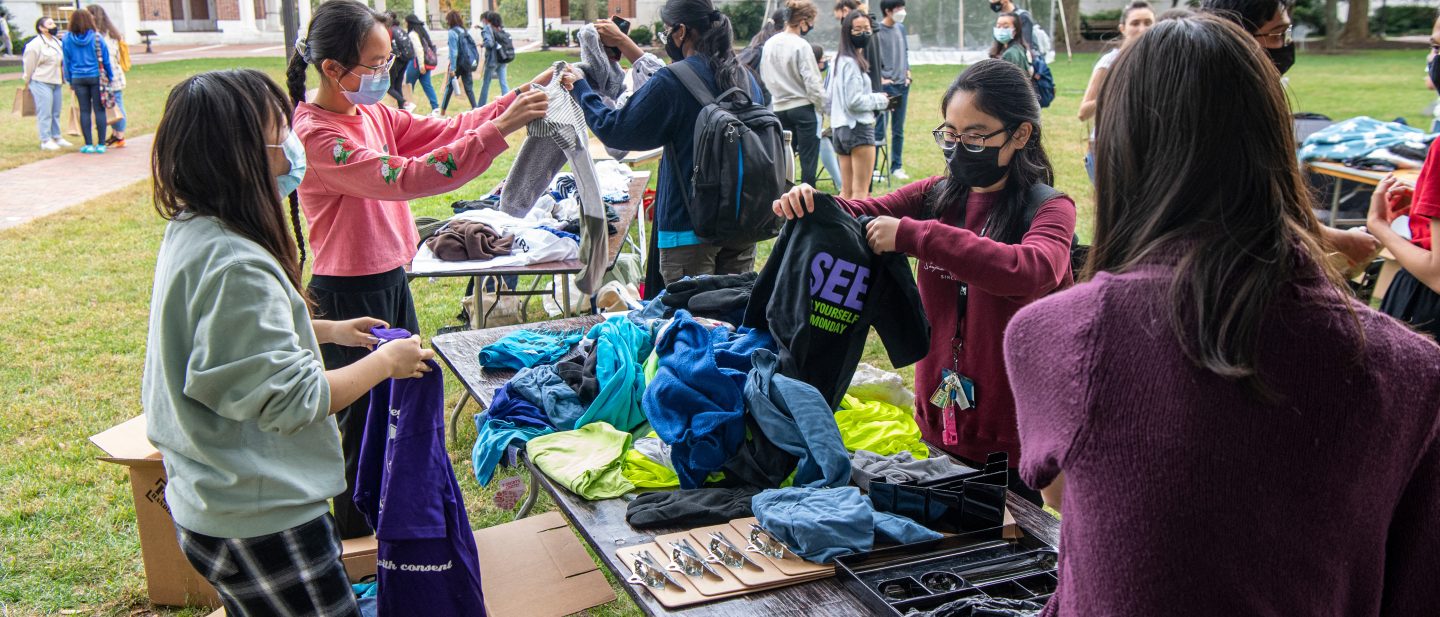
Basic Guidelines
All products have impacts on environmental and human health throughout their lifecycle, from extraction through end of life. As part of JHU’s Climate Action & Sustainability Plan, the university is committed to fostering a culture of sustainable and responsible procurement.
The Office of Climate and Sustainability encourages JHU affiliates to reuse items to their fullest potential by:
- Bringing your own reusable cup or mug – and take advantage of reusable mug discounts at Homewood Campus cafés and elsewhere
- Focusing on using items you already have before buying something new
- Mending or repairing items before replacing them
When buying a new item, consider where it was made, who made it, and what it is made of. Keep these in mind these essential tips whenever you set out to shop:
- Prioritize the purchase of durable, reusable, high quality non-plastic, and non-toxic goods over single-use products whenever possible
- Consider buying used, renting, or borrowing items before you buy new
- When possible, purchase from local, BIPOC, LGBTQ, veteran, and/or women-owned businesses
Buy Used
Buying goods second-hand is often the most foolproof approach to reducing your environmental impact — without compromising on your needs. Check out our curation of thrift and second-hand stores in Baltimore.
Buy Local
Support local, small businesses, like those from the Made in Baltimore or HopkinsLocal Directories.
Keep an Eye Out
Buy products with ethical and environmental certifications. Keep an eye out for their logos or explore their products and companies in advance online.
Responsible Purchasing at JHU
To help the university reach its sustainable procurement goals, students and employees are encouraged to focus on making responsible purchasing decisions, both on campus and at home.
School and Office Supplies
To reduce your environmental footprint, only purchase what you need when it comes to office and school supplies. When you do have to purchase new items, try to prioritize recycled or sustainably made products (such as those that are Forest Stewardship Council certified).
Books and Media
Take advantage of JHU's libraries to borrow books and textbooks for class or personal reading! Consider renting your textbooks, and, if you do have to buy, pass them along when you're done with them.
Part with Paper
Cut down on printing and go digital whenever possible. When you do need to print, reduce your margins, go double-sided, and print in black and white if you can. Try to use paper that is 100% recycled-content, chlorine free, and/or Forest Stewardship Council (FSC) certified.
Green Labs Program
Labs account for 4-5 times more energy per square foot than a typical office building! If you work in a lab, explore our Green Labs Certification program, take My Green Lab Ambassador Training, or read the Green Labs Best Practice Guide.
Surplus Office Supplies and Furniture
The Hop Reuse Hub is a surplus furniture program for JHU employees, established in 2013 to reduce waste by encouraging the use of quality, secondhand furniture previously owned by JHU departments. The program plays an important role in JHU’s reuse initiatives and helps save the university money by allowing departments to avoid the purchase of new furniture. Since its inception, the program has avoided the disposal of over 400,000 pounds of furniture and donated $100,000 worth of items to local non-profits.
Try These Swaps
If you’re looking to reduce your personal footprint, consider some of the following suggestions to cut down on waste and emissions from the products you buy.
Below are some Baltimore-area refill, bulk, and zero waste stores:
- Mount Royal Soaps for liquid and bar soaps and more
- FOBA Refillery for bath and body care and cleaning supplies
- MOM’s Organic Market or OK Natural Food Store for pantry staples, herbs & spices, and tea
- Farmers markets for produce, bath and body care, flowers, and more
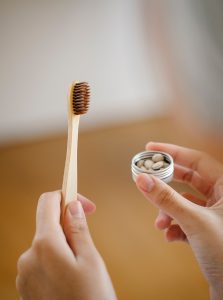 Personal care products may contain harmful ingredients and can be packaged with unnecessary materials that create excess waste. By learning about and avoiding harsh, synthetic chemicals (i.e., parabens, phthalates, phenols, etc.) and prioritizing package-free or bulk products, you can reduce your waste and avoid exposure to unsafe ingredients during your personal care routine.
Personal care products may contain harmful ingredients and can be packaged with unnecessary materials that create excess waste. By learning about and avoiding harsh, synthetic chemicals (i.e., parabens, phthalates, phenols, etc.) and prioritizing package-free or bulk products, you can reduce your waste and avoid exposure to unsafe ingredients during your personal care routine.
More sustainable options for personal care items include:
- Reusable cotton rounds and cotton swabs
- Toothpaste tablets
- Reusable menstrual products and diapers
- Reusable razors
- Solid soap, shampoo, and conditioner bars
- Refillable liquid soap, cleaning supplies, and other bath and body products
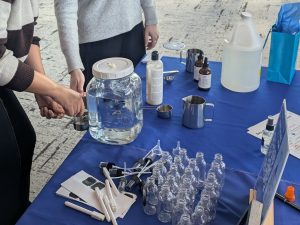 Like personal care products, it is important to avoid excess waste and harsh chemicals in your cleaning routine.
Like personal care products, it is important to avoid excess waste and harsh chemicals in your cleaning routine.
Consider purchasing reusable towels, refillable or bulk soap and cleaning supplies, and compostable tools, such as wooden or bamboo dish brushes.
DIY cleaning solutions are often more sustainable and just as easy-to-use and effective as store-bought options. You can reduce your waste even more by purchasing the ingredients in bulk or at a package-free store. These DIY solutions use natural ingredients like lemon juice, white vinegar, borax, olive oil, or baking soda. Try out some of the ideas below:
- Try making your own DIY laundry detergent
- Many household cleaners can be replaced with DIY solutions – get some advice on making your own cleaning products here
- But make sure you use the right product for the right purpose! (E.g. there are some items and surfaces that you definitely shouldn’t clean with baking soda)
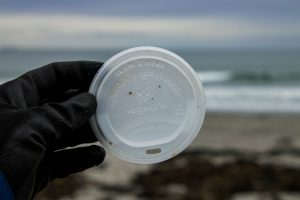 Eliminate your acquisition of new plastic as much as possible to avoid contributing to the global waste crisis. Many products are now available in compostable forms, such as produce bags, food containers, toothbrushes, and more. Always remember to correctly dispose of your compostable items to ensure you make the most of their environmental benefit.
Eliminate your acquisition of new plastic as much as possible to avoid contributing to the global waste crisis. Many products are now available in compostable forms, such as produce bags, food containers, toothbrushes, and more. Always remember to correctly dispose of your compostable items to ensure you make the most of their environmental benefit.
The Biodegradable Products Institute offers a product certification that confirms whether an item is compostable. Explore their directory to find products that can be composted, and reduce your impact on growing landfills by making a more informed choice.
Using your purchase for an event?
Check out our Green Events page and Preferred Green Caterers Guide for more ways to make your event sustainable.
Need to dispose of items?
Properly sort your compost, recycling, and waste to help reduce the amount of material going to landfill.


